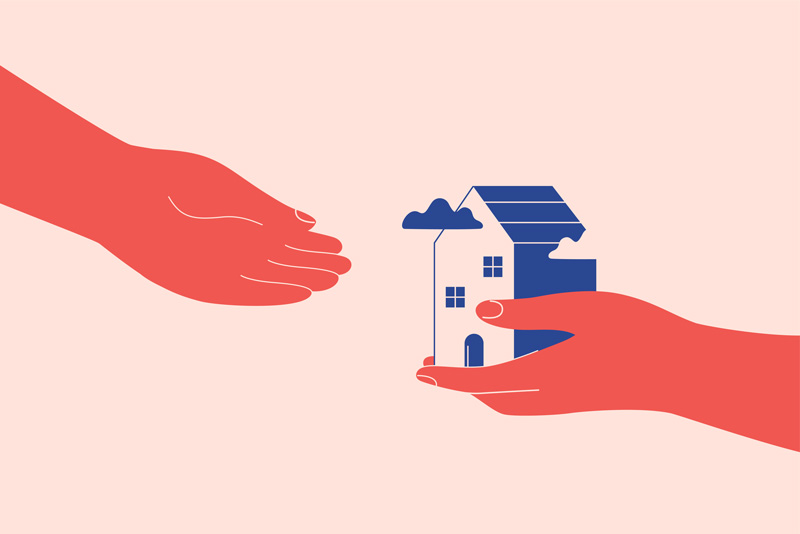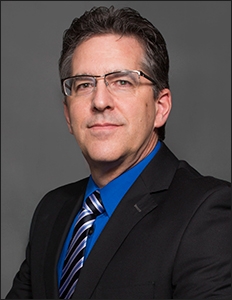People USA is thrilled to contribute to this important issue of Behavioral Health News on housing and employment. We first considered sharing data demonstrating our positive outcomes in these areas. Instead, we thought the true story of a person with lived experience would better illustrate the importance of peers in the recovery process.

“Why am I even here?” Catherine recounted a question she had posed to her AA sponsor. Her sponsor’s reply: “Your purpose is to help the next sick and suffering addict.”
By the time she was 20 years old, Catherine had developed the habit of ingesting ten to twenty bags of heroin per day, overdosing multiple times while homeless, and losing track of the number of times she had been to rehab.
For Catherine, it all started in high school when she was struggling with anxiety and depression. When the family doctor overprescribed ADHD and anxiety medications, she figured out she could snort the extra pills. She liked the escape they provided, and it wasn’t long before she was using other drugs like heroin injectables and cocaine simultaneously.
Despite her ongoing struggle with addiction, she had entered college with a human services major, determined to help others like her uncle, who lived with severe paranoid schizophrenia.
“I dropped out of college six credits short of a degree because the two classes I was taking got in the way of my using. I would go to the Bronx every day to buy heroin, and I would drive past the Fordham campus. I thought it was so beautiful. I would watch the kids walking on campus and thought about how I wished I could be normal like them.”
Catherine’s drug use eventually led her to homelessness: breaking into abandoned buildings and motels, sometimes sleeping in her car, and eventually on the street.
“I always tried to work because I was raised to work hard. But it is extremely hard to work when you’re homeless. You have all your clothes in the trunk of your car, you may have slept in your car, you feel like crap, you might not be able to shower, do laundry, or anything, and employers start to notice. And then, instead of focusing on getting to work, you have to focus on survival. So, I would say it’s basically impossible.”
Today, Catherine works at People USA, a 100% peer-led mental health non-profit helping individuals with mental health issues, substance use, and homelessness in New York’s Hudson Valley. Being peer-led means that all of their services are developed and operated by people who have personally overcome these same experiences.
As a Housing Coordinator for the organization, and with her own lived experience, she became passionate about People USA’s “Housing First” approach.
“A lot of housing programs or agencies require you to be clean and housing ready. If you use drugs, you get kicked out. If you get arrested, you get kicked out. They have a no-tolerance policy for any of that stuff, even though that’s not evidence-based practice. So, with Housing First, we take you as you are. You don’t have income; we’ll help you get that. You’re still using drugs? Okay, we’ll work on that later. Housing happens first, and the belief is once you’re housed, then you can work on all that other stuff. And at the end of the day, housing is a human right. So, whether somebody’s using or not using, they are still worthy of housing.”
Each year, People USA provides more than 120 individuals with stable, permanent, independent housing, going on to deliver wrap-around services that support recovery, employment, and so much more.
Catherine went on to share how the lack of peer support in her recovery contributed to isolation and feeling misunderstood. “I never heard of a peer advocate. I never heard of the peer movement. Every Credentialed Alcohol and Substance Abuse Counselor (CASAC) that I got at outpatient, I was like, are you in recovery? All of them said no, and I just wrote them off. There’s no way that you can understand what I’m going through. I was almost like, why would I talk to someone who doesn’t get that?”
Catherine believes that if she had access to the type of peer support she now provides, she would have seen that “recovery is truly possible.”
“You can go that low, and then you can become someone who’s not only employable but someone who can then go on to help others. You have something to offer, and your experience is valuable. All the bad stuff you went through, you can use that and help someone with it. I never knew that.”
Catherine is proud to work for an organization that utilizes peers in every facet of their programming. People USA peers embedded in local hospitals help over 1,000 individuals annually with education and connections to community-based resources. Their Rose Houses – home-like alternatives to hospital psychiatric ERs and inpatient units – are hosted by peers who can greet guests with a different level of empathy and understanding. The Stabilization Center is the first peer-run crisis stabilization center in the world, where people of all ages can connect 24/7 with an integrated team of peers and professionals for support with emotional distress, psychiatric symptoms, substance use challenges, or other life stressors. These programs are all part of a continuum of care meant to treat the whole person at every step, providing a variety of ways individuals can access People USA’s services.
Perhaps most impressive is the organization’s impact on its employees and their personal journeys.
“Every other job I’ve had except this one, I did not reveal to anybody who I really was. It’s terrifying, and there’s a big stigma, and people judge you. I always felt like I was hiding,” Catherine explained. “People USA has really helped me stay clean because I can openly share my experience with the participants, and I know they look up to me,” said Catherine. The imposter syndrome she mentioned earlier about a former job had disappeared. “Working here has positively impacted my mental health so much. Their mission and their values align with my own, which is very fulfilling. It’s something that I really believe in, which makes me happy.”
Today, Catherine has been sober for nearly seven years. While working for People USA, she was able to finish her associate’s degree and then her bachelor’s, graduating summa cum laude with a 3.97 GPA. She beamed with pride as she told me that she has officially become one of the kids she envied when she drove by Fordham University, currently pursuing her master’s in social work so she can further her work as a peer advocate.
She left me with a message for the larger behavioral health community.
“Sometimes all people need is for just one person to give them hope.”
People USA’s mission is to educate, support, and empower people and communities to understand, manage, and overcome mental health, addiction, and social determinants of health challenges. Their programs are proven to significantly reduce hospital utilization, incarceration rates, and overall healthcare spending. Because of its success, People USA’s program models have been studied and replicated across the United States and Europe. Government agencies and community organizations can receive consultation services directly from CEO Steve Miccio, the visionary behind the organization’s innovative approach. To learn more, for consultation, or to support this work, visit people-usa.org.







